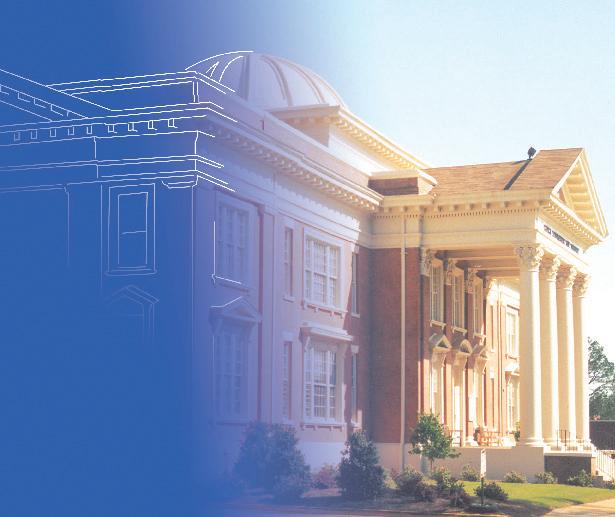
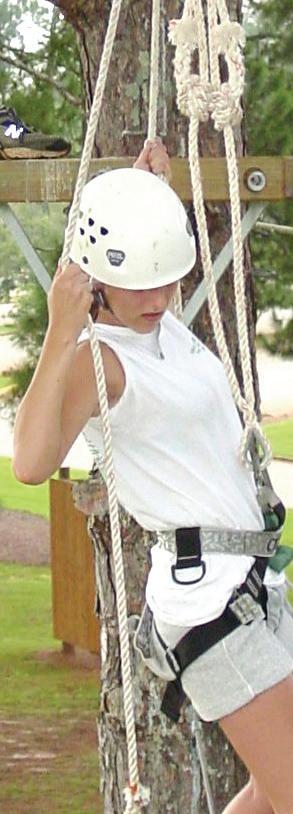
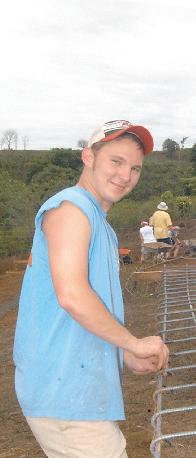

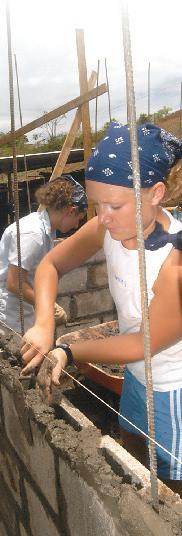
legacy of






legacy of


The Aeolian is published by the Division of University Relations at Georgia Southwestern State University. The name Aeolian derives from Aeolus, appointed by the mythological god Zeus to be the keeper of the winds –– both to calm and to arouse them. He was the King of the Aeolian Islands.
Aeolian
800 Wheatley Street Americus, Georgia 31709 229.931.2038 229.931.2072 (fax) wdsumner@canes.gsw.edu www.gsw.edu/news
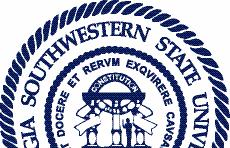


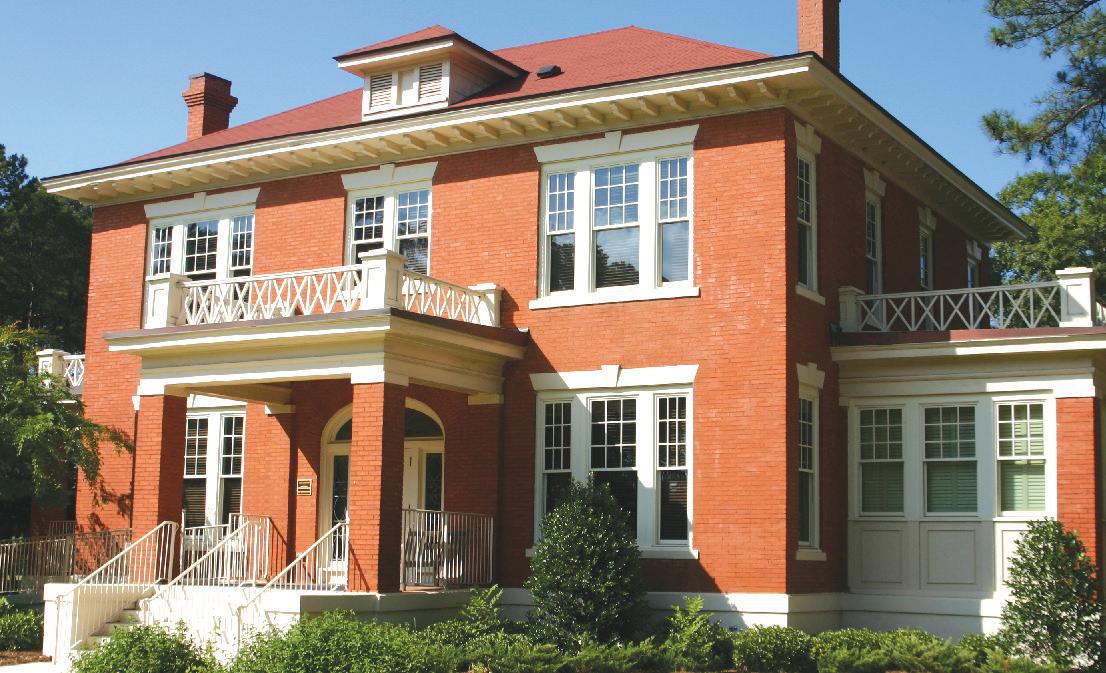
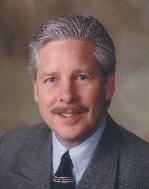
Michael L. Hanes, Ph.D.
Firm Foundation–Courtney Bean and President Hanes pour concrete into blocks for a new home, as part of the Costa Rica service learning trip earlier this year.
t Georgia Southwestern, we recognize that the vitality of our campus community is dependent on the contributions of each member of the community—faculty, staff, students, and alumni. Similarly, we also share the responsibility for campus leadership and, in particular, students are encouraged to seek opportunities to serve as campus leaders.
For example, we recently held a dinner meeting with representatives of the many Greek organizations on campus. I challenged these student leaders, alumni, and campus advisors to foster the development of their organizations as models for other student groups and to accept the responsibilities of campus leadership. We are encouraging all of our student organizations to raise their expectations for campus involvement and to take advantage of the opportunities to learn valuable lessons in leadership.
Leadership development can be found in a variety of places all across our campus—in classrooms, in student organizations and governance, in intercollegiate and intramural athletic competitions, and, not surprisingly, in the curriculum.
An important goal for the core curriculum is to provide all students with a breadth and depth of knowledge to function effectively in an information rich environment. Our knowledge-based economy requires that tomorrow’s leaders be well versed in a range of disciplines. In a variety of disciplines, faculty are improving instruction and learning by actively engaging students in the teaching/learning process. The widespread use of computer technologies in instruction at Georgia Southwestern has contributed to classrooms that are alive with learning.
The courses in the core curriculum provide students with great opportunities to support their development as effective self-directed learners. With a rapidly expanding knowledge base, tomorrow’s leaders will need to be agile learners who can move from one problem or issue to another without becoming overwhelmed with information overload. Effective and efficient self-directed learners have the skills to sort information and to focus on the critical elements of a problem or issue.
The undergraduate curriculum at Georgia Southwestern continues to be enriched by faculty members who include opportunities for collaborative learning and community service. In the School of Computer Science, for example, students are expected to work collaboratively in small teams to complete challenging assignments. One of the strengths of the Students In Free Enterprise (SIFE) program in the School of Business Administration is the group commitment to working together to achieve common goals and objectives. These experiences promote an understanding of the concepts and content of academic assignments as well as development of skills in leadership, problem solving, and working with diverse groups.
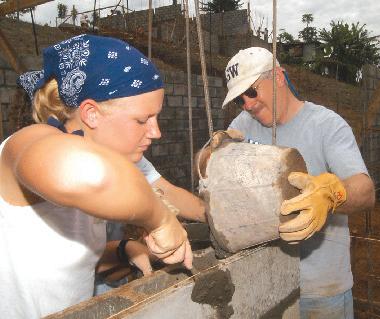
Courses that include community service also reinforce problem solving and leadership skills through projects that are designed to respond to a community need. The research suggests that community service promotes learning that can be particularly powerful and lasting if the experience is also integrated with the academic content of the course. This is part of the underlying design of the international, interdisciplinary course, UNIV 4000 Perspectives on Contemporary Cultures, described in this edition of the Aeolian (story, page 13).
Developing leaders is clearly a central theme at Georgia Southwestern. The students on campus today will be challenged to contribute to the record of leadership achievement established by our many distinguished alumni. The foundations for the future achievements of our current students, however, are being established in their involvement in leadership development opportunities across the campus—in classrooms, in student organizations, and in student governance.
he 2004-05 academic year is underway, and GSW is an institution on the move.
“Our campus community, and our alumni and friends in the larger community, are committed to purposeful growth and progress,” said President Michael L. Hanes, Ph.D. “This will be a year of landmarks in the history of our campus.”
Revitalizing GSW’s historic infrastructure, while continuing to explore new learning opportunities for students, are integral components of the University’s commitment to education.
“In the next 12 months, we will see the completion of the $22 million Student Success Center; the initiation of new academic programs on campus as well as programs reaching out to our various constituencies in Southwest Georgia; and the restoration of our most cherished historical structure, the Wheatley Administration Building,” Hanes said (see back cover).
“Meanwhile, our campus is adding men and women’s golf and soccer; enhancing facilities resources with the addition of the GSW Golf & Conference Center by the Georgia Southwestern Foundation; and continuing preparation to celebrate the institution’s centennial in 2006,” Hanes added. “This progress comes as the University pursues a $12 million capital campaign to raise money for much-needed scholarships, programs and facilities. To date, more than $7.9 million has been secured (see campaign newsletter, page 9).
“It’s a great time to be a part of this very special institution,” Hanes said.
Academically, GSW is now collaborating with Albany State University and Dalton State College to offer the new Bachelor of Applied Science in Technology Management, or WebBAS. The degree program is designed with working professionals in mind and is offered entirely online. Graduates will be qualified for technical managerial positions in fields
encompassing avionics, automotive technology, electronics, construction, telecommunications, and other areas. For more information, visit www.WebBAS.net.
A collaboration to offer four-year degree programs in Nursing, Early Childhood Education and Business Management with a concentration in Survey Management on Middle Georgia College’s Cochran campus will begin Spring Semester 2005.
Construction of the 130,000 square foot Student Success Center, designed as the new hub of campus life, is expected to be complete in early 2005. Highlights of the domed, two-story facility include a convocation hall/sports arena with seating for 3,000; updated athletic facilities, including training areas and a fitness center; recreational facilities, including racquetball courts and a climbing wall; new and improved Health and Human Performance facilities, encompassing classrooms, conference space, fitness areas, and offices; room for various student organizations including Student Government and the Student Affairs Division.

The University’s lead law enforcement officer is in the spotlight for his service to students.
Public Safety Director Oris W. Bryant, Jr., known across campus simply as “Chief,” was profiled in the August issue of “E-SOURCE for College Transitions,” the electronic newsletter of the National Resource Center for The First-Year Experience and Students in Transition at the University of South Carolina.
Bryant is highlighted as “the students’ guardian,” who invests extra effort in getting to know and help campus community members. He is involved in diverse aspects of campus life, from coordinating GSW cookouts to simply listening to students who need to talk.
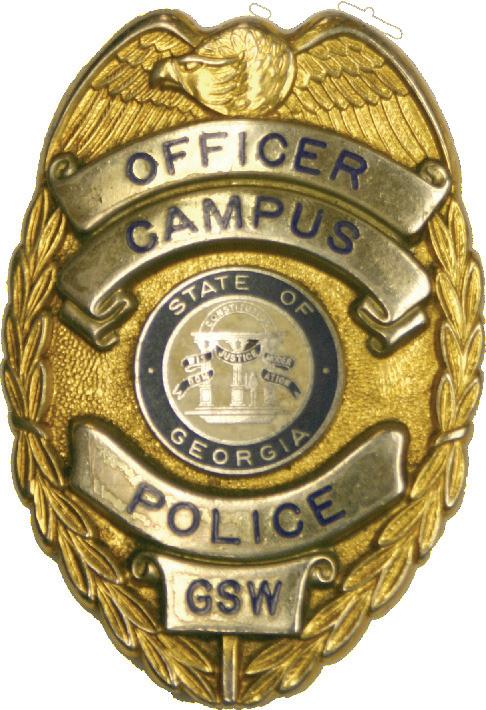
Bryant holds a Bachelor of Business Administration degree with a concentration in Management from Fort Valley State University. He holds Georgia Law Enforcement advanced training, Executive Certification. Bryant has served as president of the Georgia Association of Campus Law Enforcement Administrators and also five years as district vice president for the Georgia Association of Chiefs of Police. He is an active supporter of student organizations on campus. He has received numerous individual student recognition awards and was voted “GSW Staff of The Year” in 2000. He began his employment with GSW in January 1995.

The newsletter is published in connection with Georgia Southwestern serving as one of 12 “Founding Institutions” in a national project known as the “Foundations of Excellence in the First College Year.”
GSW is one of only two institutions in the Southeastern United States invited to participate.
The project, jointly sponsored by the Policy Center on the First Year of College and the American Association of State Colleges and Universities (AASCU), will develop a model of excellence for the first college year. This model can be used by public colleges and universities to develop and refine their overall approach to educating new students.
Chief Chef–GSW Public Safety Director
Oris W. Bryant, Jr., often grills for campus events.
The campus chapter of Habitat for Humanity International invites alumni to participate in a Centennial Celebration House Sponsorship. The chapter is raising funds to build homes for one local family and three international families as part of GSW’s 2006 Centennial Celebration.
“We want alumni to be a part of our efforts by working with us on Habitat build projects, locally and internationally, as well as helping with our fundraising,” said Tom Weiland, Ph.D., chapter adviser. He said the group is sponsoring several fundraising activities to reach the goal of $45,000.
The New Horizons Chapter of Habitat is co-sponsoring the effort.
For more information, visit: www.gsw.edu/~gswhfhc or call (229) 931-2327.
GSW was recently awarded a federal grant from the U.S. Department of Education’s Fund for the Improvement of Post Secondary Education (FIPSE).
The grant award totals $402,676 over three years.
This FIPSE-funded project, titled “Documenting and Disseminating the Effectiveness of Professional Development Schools in Improving Teacher Quality & Retention, Student Learning & Achievement” is national in scope and a fully collaborative initiative. According to Mary Gendernalik Cooper, Ph.D, dean of
continued on page 6
continued from page 5
the School of Education and the project’s director, the grant will be used to create and implement an enhanced Web sharing of Professional Development School (PDS) effectiveness.
The overall project commitment totals nearly $600,000, which includes the $402,676, or 67 percent, federal funding. The remaining $197,160 is being contributed by non-federal sources—the project’s collaborating partners.
Several GSW faculty and staff have been recognized for their leadership and expertise in recent months:
n Maria Warda, Ph.D., dean of the School of Nursing, was elected vice president of the National Association of Hispanic Nurses.
n John Kooti, Ph.D., dean of the School of Business, was honored when his paper on the use of technology in college business programs was selected to receive the “Best Paper” award at the International Business and Economic Research Conference.
n Frieda Jones, director of Financial Aid, was elected to the presidency of the Georgia Association of Student Financial Aid Administrators and vice president of the Southern Association of Student Financial Aid Administrators.
n Gregory Davis, director of Auxiliary Services, received the 2004 President’s Award from the Georgia Association of College Stores, while serving as the organization’s vice president during the 2003-2004 term. He was also elected to serve as president of the organization for 2004-2005.
n Nancy Rooks, director of Procurement, was named the Government Purchasing Officer of the Year by the Government Purchasing Association of Georgia.
n Continuing Education Director Bobbie Duncan and her staff were recognized by Elderhostel, Inc., for the University’s two decades of commitment to lifelong learning experiences for older adults. GSW Elderhostel has the largest program in the 11-state southeast district and the 10th largest program in the United States.
The second installment of GSW’s award-winning “Milestones in Georgia History” radio PSA project was distributed to radio stations across the state this summer.
Topics of the 60-second history vignettes include Napolean’s Peach State connection and why President Jackson once sided with Georgia against the highest court in the land.
The public service announcements are provided free to FM and AM radio stations. You can hear downloadable audio clips here: www.gsw.edu/~univrel/news/milestones.html.
Two of GSW's business graduated are spotlighted in the October 2004 issue of Georgia Trend magazine, ranking among the state's "40 Under 40."
Tina Anderson, Ed.D., president of Moultrie Technical College, and Brad Lofton, president and CEO of the Effingham County Chamber of Commerce and Development Authority, earned the annual nod to Georgia's up and coming professionals.
Anderson, 39, earned a BBA in 1987 and her MSA in 1992 from GSW. She was named president of Moutlrie Technical College in 2003.
Lofton, 27, earned his MBA from GSW in 2004. He is the former executive director of the Lee County Chamber of Commerce and Development Authority.
Georgia Trend calls the 40 chosen people for its eight list "the best and brightest young people" in the state. They reflect a sampling of Georgia's rising superstars, including a mix of entrepreneurs, traditional businesspeople, civic leaders, public servants, academics and nonprofit workers from every corner of the state.
Staying Connected–Motorola executives Tom MacTavish (left) and Eduardo Bicudo Cocozza recently visited with students, faculty and staff. MacTavish, vice president and director of Motorola Labs’ Human Interface Laboratory, gave a presentation titled “Understanding Business and Technology.” Cocozza is a senior business development manager for the company. The visit was sponsored by the Southwest Georgia Technology Council and hosted by GSW’s School of Computer and Information Sciences.
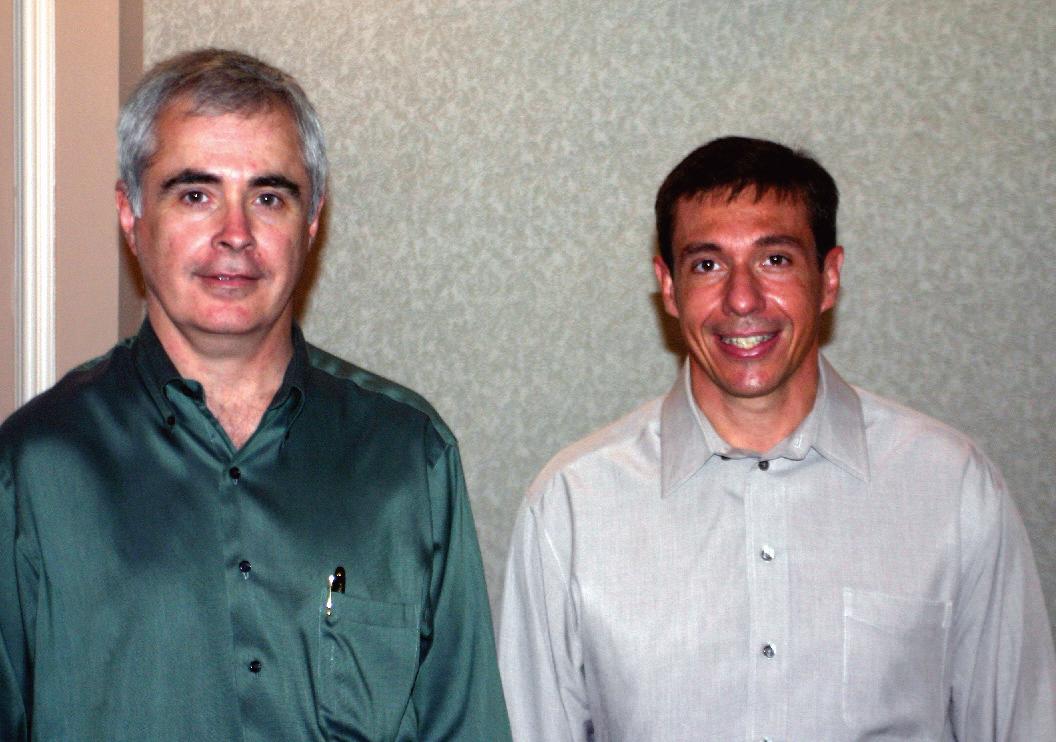
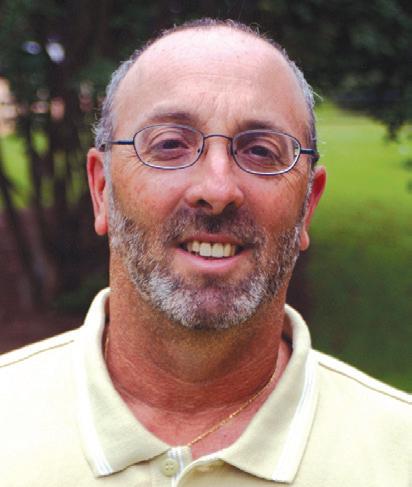
Maccabi USA Sports for Israel has announced that Hurricanes soccer coach Barry Kaplan has been selected to coach the Junior Boys Soccer team for the 17th World Maccabiah Games.
The Maccabiah Games are a quadrennial Olympic style competition for Jewish athletes that will be held July 11-21, 2005, in Israel. Maccabi USA/Sports for Israel, located in Philadelphia, Penn., sponsors U.S. participation in the Maccabiah. This team will be selected from Jewish soccer players born 1989-1990 from across the United States.
In November 2000, head coach Kaplan led the U.S. national Maccabi U-17 boy’s soccer team to Sao Paulo, Brazil, and won the bronze medal at the Brazil National Maccabi Games. Kaplan’s squad competed against club teams and all-star teams from Sao Paulo and Rio de Janeiro.
“Coach Kaplan did a superb job of making a team out of virtual strangers in a very short time under extremely competitive conditions,” said Jordan Weinstein, U.S. head of delegation. “I was impressed with Barry’s organizational and leadership skills.”
The positive experience of that team, on and off the field of play, was a credit to Kaplan, Weinstein said.
“Coach Kaplan is the right person to lead the U.S. Maccabiah Junior Team (U-16) at the World Maccabiah Games in Israel in July 2005. With more than 6,000 athletes from more than 50 countries, the U.S. will compete against
"Coach Kaplan did a superb job of making a team out of virtual strangers in a very short time"
Jordan Weinstein, U.S. head of Maccabi USA/Sports for Israel
the best Jewish athletes in the world,” Weinstein said.
This fall, Kaplan kicked off his first season as head coach of the new Georgia Southwestern Hurricanes soccer program. Previously, he was head soccer coach at Andrew College after moving to Georgia from South Florida where he was director of soccer operations for the former Miami Fusion of Major League Soccer.
Sept. 25, the Hurricane Hall of Fame inducted three new members during its annual celebration. Honorees included:
n Women’s Basketball/ Tennis—Kim Cribb, (’98, ’99). Her accomplishments include: the GSW Coaches Award in 1995, being the leading scorer, leader in field goals percentages, leader in three-point percentage, leader in rebounding, and leader in free throw percentage in 1997. She was also a scholar athlete. Cribb played in 121 games, 4 GACC championships and contributed to two GACC titles.
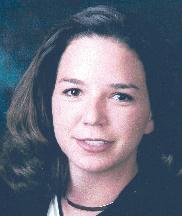
n Women’s Tennis—Laura Holland Schoenwald (’98). Among her accomplishments: she was the first GSW women’s tennis player to be nationally ranked in doubles play, the first GSW women’s tennis player to be named All American, and a member of the first GSW women’s tennis team to be nationally ranked.
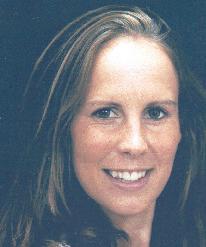

n Men’s Basketball—Ernest Scott (‘04). Among his accomplishments: being named the Georgia Junior College Athletic Association Player of the year; serving on GACC conference championship and all conference teams; leading the Southland Academy boys basketball team to the Region 3AAA basketball championship for 2002-03.
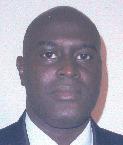
The Hurricanes 2004 men’s tennis team finished third at the NAIA National Tournament. They defeated Flagler and Northwood before losing to Auburn UniversityMontgomery, who went on to win the national championship.
Todd Hiscox was named First Team AllAmerican for the second time. Brennon Sewell coaches the team.
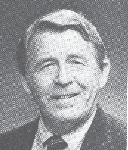
Former GSW Football Coach Jimmy L. Hightower was inducted into the Georgia Athletic Coaches Association (GACA) Hall of Fame on June 5.
Hightower also coached at Americus High School, Cedartown High School, LaGrange High School and Bainbridge High School. His high school coaching career covered 27 years. During that period, he won 16 region championships, three sectional championships, one state runner-up title and seven state championships while coaching football, basketball, baseball and golf.
According to the GACA Hall of Fame, “The fact that he won state championships in all four sports makes him one of the most successful and most versatile coaches in our state. Coach Jimmy Hightower will long be remembered for his willingness to help others in the coaching profession.”
The GACA established its Hall of Fame in 2000, “to honor and preserve high school coaches accomplishments and to educate and inspire future generations.”
Hightower coached the ‘Canes from 1982-89, and is also a member of the Hurricane Hall of Fame.

Turf–ESPN golf commentator Charlie Rymer (left) visits with Sam Hunter and Greg Hawver, Ed.D., this summer at the Georgia Southwestern Golf & Conference Center in Americus. He was joined by Mike Young (far right). Rymer and Young, partners in the Young-Rymer Designs architectural firm, were in town to discuss the possibility of their company completing a master plan for the facility. The Athens-based firm has designed, constructed or renovated more than 20 golf courses. An ESPN commentator since 1998, Rymer was a member of the PGA Tour in 1995, ’96 and ’97. Young has been an architect since 1984.The Georgia Southwestern Golf & Conference Center, formerly the Americus Country Club, was purchased in April by GSW’s Georgia Southwestern Foundation, Inc., and is undergoing a $1 million renovation.
BOARD OF TRUSTEES Campaign Leaders
Chair, John T. Argo
Vice Chairs, Greg Austin
Barry Blount
O. Jay Cliett, Ed.D.
Harold Holloway, D.O.
Marion “Pete” Silver
Henry K. Stanford, Ph.D.
Ginger Starlin
William L. Tietjen, Ph.D.
Rick Whaley
FACULTY AND STAFF Campaign Leaders
FACULTY COMMITTEE
Chairman, Harold Isaacs, Ph.D.
Pat Cook
Michael Fathi, D.B.A.
Vera Weisskopf
Bill Wysochansky, Ph.D.
STAFF COMMITTEE
Chairman, Cody King
Gaye Hayes
Diane Kirkwood
Hugh Slaton, Jr.
RCI & SELECT FRIENDS Campaign Leaders
Co-Chairs, Kathryn Cade
Michael Cheokas
FACULTY AND STAFF RETIREES Campaign Leaders
Co-Chairs,
William L. Tietjen, Ph.D.
Liz Smith Kelly
ALUMNI Campaign Leaders
Chairman, Lee Belford
Vice Chairs, Rudolph Patterson
Mary Wysochansky

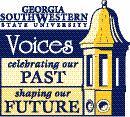
What is a charitable gift annuity and what advantages are there for GSW donors?
A gift annuity is a contract under which GSW, in return for a transfer of cash or equities, agrees to pay a fixed sum of money for a period measured by one or two lives. The maximum number of annuitants is two, and payments can be made jointly or successively. There are various combinations for structuring an annuitant arrangement.
Specifically, there are two payment arrangements, immediate and deferred. With an immediate-payment, the donor starts receiving payments immediately following his/her contribution. Payments can be made monthly, quarterly, semi-annually or annually. The most common arrangement is quarterly. With a deferred-payment gift annuity, the donor starts receiving payments at some future date. Whether immediate or deferred, payments are fixed from the beginning. Payments will not vary, regardless of what happens to interest rates or the stock market. The GSW Foundation is contractually obligated to make the payments, even if it has to use foundation funds to do so. This is a tremendous source of comfort for individuals who do not want their future income dependent on the whims of the financial markets.
Size of payments depends on amount contributed, age of the donor(s), the gift annuity rate, the IRS discount rate, and when the payments begin if it is a deferred gift annuity. Since 1927, the American Council on Gift Annuities
(ACGA) publishes a schedule of suggested gift annuity rates. GSW adheres to the published rates suggested by ACGA. Changes in rates only affect new gift annuity agreements. Rates are locked in for life when the initial gift annuity is created.
When a GSW gift annuity is funded with cash, part of the income will be taxed as ordinary income and part will be tax-free. This is a significant advantage over commercial annuities. When an annuity is funded with equities, part of the income will be tax-free, part will be taxed as ordinary income, and part will be taxed as capital gains.
The present value of annuity payments is calculated based
(continued on page 2)
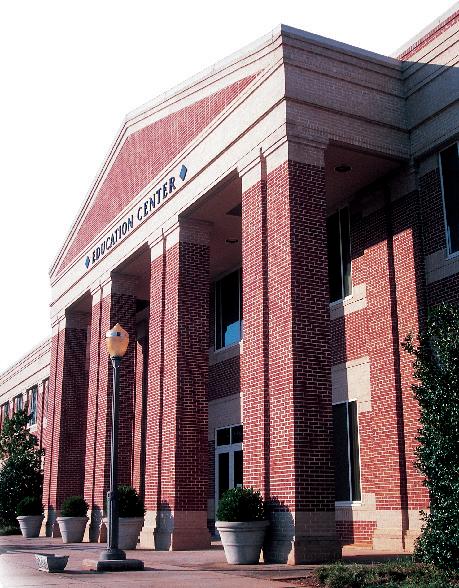
(continued from page 1)
on the IRS mortality tables and discount rate (the Charitable Midterm Federal Rate that IRS publishes monthly) in effect at the time the gift is made. This amount divided by one’s life expectancy determines what portion of the gift will be tax-free. The balance of income is taxed as ordinary income. If you live beyond your life expectancy, your payments become fully taxable. If you die earlier than your life expectancy, a partial deduction can be taken on your final tax return. The fact that a significant part of your income payment is tax-free during your life expectancy makes a GSW gift annuity something well worth consideration since it can double or triple your cash flow depending on your personal financial situation. Generally,
40 to 60 percent of the cash contribution income payments are tax-free for the individual’s life expectancy. These payments will be calculated by GSW’s planned gift administrator, Wachovia National Center for Planned Giving. The Donor may choose to use the IRS discount rate for the month the gift is made or for either of the two immediate preceding months.
The GSW Charitable Gift Annuity maximum deduction is subject to 50 percent of adjusted gross income when cash is donated. Deductions above this amount can be carried over for five years. Charitable deductions are only beneficial to individuals who itemize deductions. Donors will be provided illustrations of their gift annuity tax-free
income, taxable income, and capital gain taxes, if contributions are other than cash (stocks). Naturally, you are encouraged to discuss the illustration with your tax and financial adviser. GSW Foundation Gift Annuities are backed by the foundation’s full faith and credit. Remember, we are now experiencing greater longevity and no one wants to run out of money in his or her later years. A GSW Gift Annuity helps offer you that security no matter how long you live. You will also have the satisfaction of knowing that you helped provide for the future of Georgia Southwestern. If you have questions concerning gift annuities, please call Roger Congdon, director of Development, at (229) 9312037.
The Voices drive is successfully spotlighting a critical need at the University—additional funding for student scholarships. The campaign has recorded more than $617,000 in additional scholarship dollars since it began.
Examples of scholarships fully funded as part of the campaign:
Bettie Tolson Rhyne Scholarship—Candidates must be enrolled in a GSW master’s degree program in remedial reading, science or mathematics.
Paul A. Rhyne Scholarship—Candidates must be enrolled in a band or instrumental performance ensemble course.
Leewyn Finklea Scholarship—Originally established years ago to honor GSW’s first alumni director, the Alumni Association recently made a contribution to fully fund the award. Applicants must have financial need, possess a minimum GPA of 2.75, and show interest in community and university-related activities.
The Rhyne scholarships were created by Dr. Claude L. Rhyne, Jr., Class of 1939, in memory of his wife, Bettie (Class of 1976 with a master’s degree) and his son, Paul, who also attended GSW.
“Donors to the Voices campaign can designate their gifts for any existing scholarship program, or, perhaps start their own scholarships,” said Roger Congdon, GSW director of Development and campaign director. “We look forward to working with you.”
During the 2003-04 academic year, the Georgia Southwestern Foundation, Inc., administered approximately $550,000 in scholarships that assisted more than 370 GSW students.
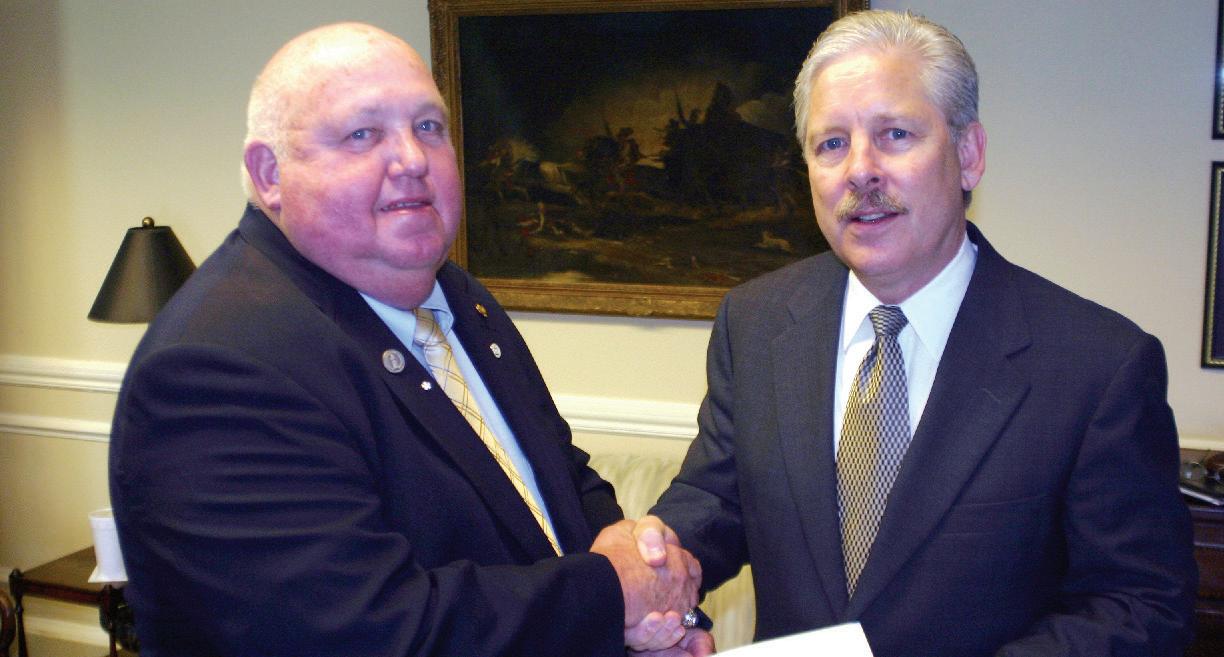
Rosalynn Carter Institute Caregiving Endowment
Base Goal: $3,000,000
Challenge Goal: $4,000,000
New Residential Complex
Base Goal: $1,500,000 Challenge Goal: $4,800,000
Student Scholarship Endowments
Base Goal: $1,500,000
Challenge Goal: $3,000,000
Faculty Development Endowment
Base Goal: $1,500,000
Challenge Goal: $2,000,000
Honors Program Endowment
Base Goal: $1,000,000
Challenge Goal: $1,200,000
Eminent Scholars Program Endowment
Base Goal: $1,500,000
Challenge Goal: $2,000,000
Conference Center
Base Goal: $1,500,000
Challenge Goal: $2,500,000
Campus Facilities Improvements
Base Goal: $500,000

For information on how you can be involved in shaping the future of Georgia Southwestern State University, please contact:
Roger Congdon
Director of Development (229) 931-2037 rcongdon@canes.gsw.edu
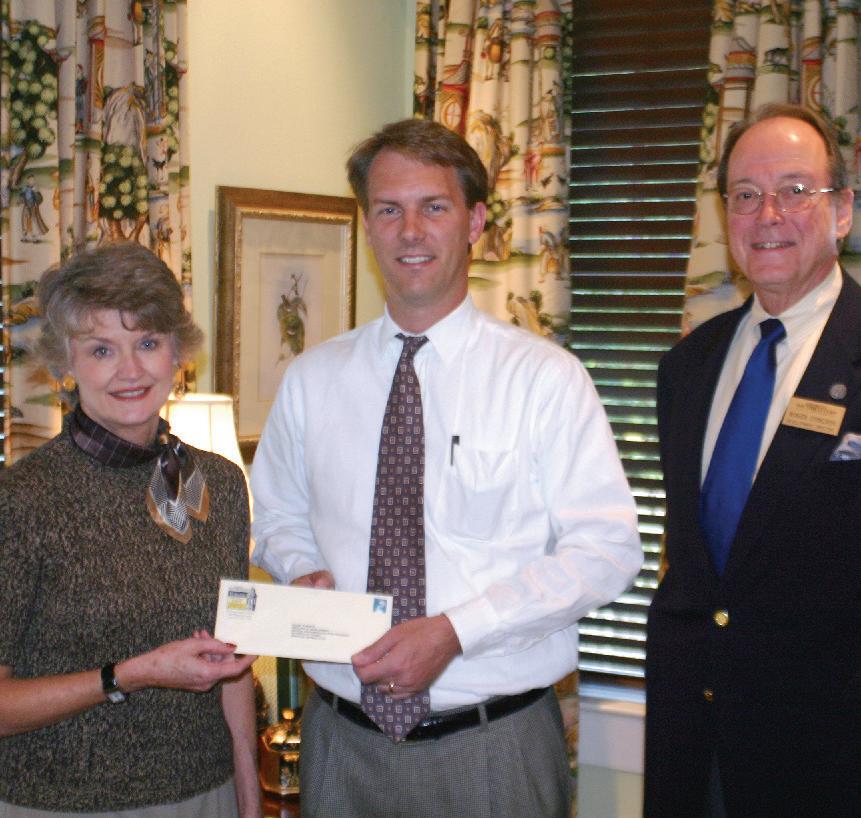
Scott Rossman, city president of Wachovia Bank in Americus, presents a $20,000 pledge from the Wachovia Foundation to the Voices...Celebrating our Past, Shaping our Future campaign. The funds are to be used for the improvement of the Georgia Southwestern Golf & Conference Center. Ginger Starlin, chair of the GSW Foundation and Roger Congdon, director of Development, accepted the gift.
Rick Whaley, president and CEO of Citizens Bank of Americus, presents to Ginger Starlin and Roger Congdon a contribution to fund a scholarship in honor of Phil Jones, Jr., former chairman of the Board of Citizens Bank. The scholarship is part of the Voices campaign.
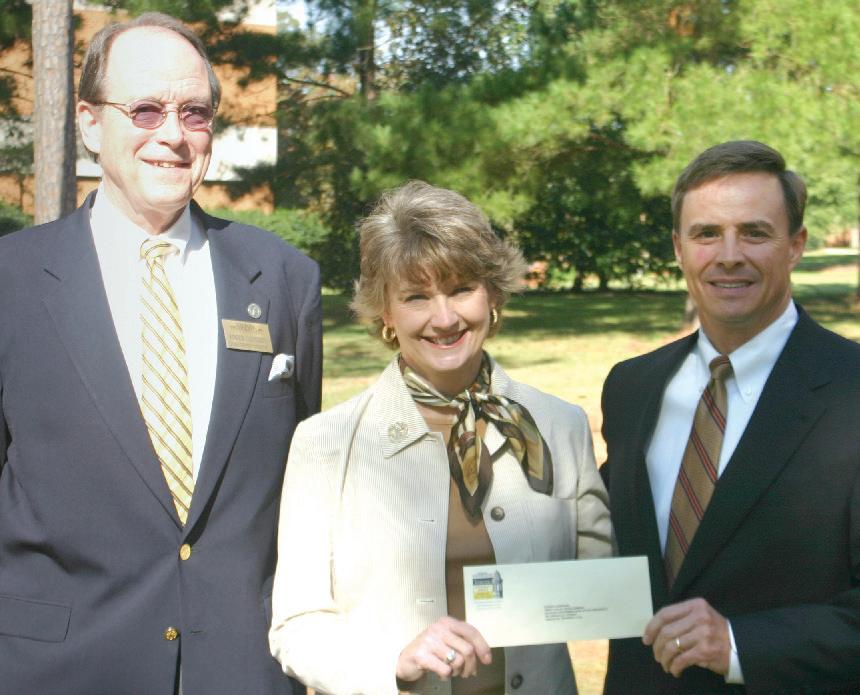


The Voices campaign wishes to express its sincere thanks to Bev Pankey, executive director of the GSW Foundation, for his support and efforts for the success of the campaign to date. We wish Bev and his lovely wife Dianne the best in their move to Michigan and subsequent retirement.
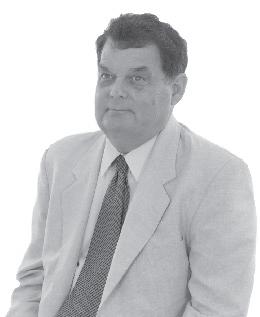
The Rosalynn Carter Institute for Caregiving (RCI) has awarded $78,000 to 21 students under the John and Betty Pope Fellowship/Scholarship program for this academic year. The number includes 15 students attending Georgia Southwestern and six students attending other universities in the University System of Georgia.
According to David Haigler, Ed.D., immediate past deputy director of the RCI and coordinator of the program, “This is the largest number of students to receive awards and the greatest amount of funding awarded since the beginning of the program. The program has grown tremendously since the first two awards were made in 1996.”
GSW students receiving scholarships for the 2004-05 academic year are Billi Gibbs, an undergraduate student from Fitzgerald majoring in middle grades education; Paige Hogsed, an undergraduate nursing student from Americus; Jamie Holley, an undergraduate nursing student from Americus; Ashley Martin, an undergraduate nursing student from Fitzgerald; Jay Pope, an undergraduate nursing student from Norman Park; and
Shanna Queenie, an undergraduate student from Americus majoring in biology/ education.
GSW students receiving fellowships are Robin Broome, an undergraduate student from Albany majoring in mathematics education; Michelle Heinzerling, an undergraduate nursing student from Cordele; Davida Hilton, an undergraduate nursing student from Warner Robins; Nithin Ramachandrappa, a graduate student from Fort Worth, Texas, majoring in computer science; Crystal Ray, an undergraduate student from Vienna majoring in early childhood education; Courtney Ross, an undergraduate student from Americus majoring in biology; Dawn Singleton, an undergraduate nursing student from Leesburg; Lorna Slaton-Whitaker, a graduate student from DeSoto majoring in special education; and Barbara Wilcox, an undergraduate student from Fitzgerald majoring in special education.
Students receiving fellowships and attending other University System of Georgia institutions are Kristen Collier, a medical student at the Medical College of Georgia; Danica Hays, a doctoral student

in counseling at Georgia State University; Jennifer Kinsey, a graduate student in community counseling at Columbus State University; Ann Landes, a doctoral student in counseling psychology at Georgia State University; Carol Rossiter, a doctoral student in social work at the University of Georgia; and Amy Sutton, a doctoral student in counseling psychology at Georgia State University.

Five GSW students who were awarded fellowships or scholarships for 200405, Billi Gibbs, Jamie Holley, Shanna Queenie, Courtney Ross, and Lorna Slaton-Whitaker, also received awards for the previous year. Two students at other universities, Jennifer Kinsey (a GSW graduate) and Ann Landes, also received awards for the previous academic year.
The Pope Fellowship/Scholarship Program was established in 1996 through an endowment from John (deceased) and Betty Pope of Americus to promote a better understanding of the importance of professional and family caregivers. Since its inception, 105 students majoring in such fields as nursing, psychology, counseling, social work, pre-med and sociology have been awarded a total of $366,000 through the program. According to Ronda C. Talley, Ph.D., MPH, executive director of the RCI, “Thanks to the generosity of John and Betty Pope, we have been able to assist numerous deserving students in their pursuit of careers in various fields related to caregiving, and we have had a major impact on the way they view issues and concerns related to caregiving. By working through these future professional caregivers, there is the potential for touching thousands of lives.”
The John and Betty Pope Fellowship/ Scholarship Program is administered by the Rosalynn Carter Institute, GSW, and accepts applications on a competitive basis with a deadline of April 1 for awards made for the following academic year.

There aren’t many university campuses where students can stroll the pathways of a former U.S. President and First Lady.

Across its nearly 100-year history, the institution has graduated thousands of leaders who have worked within their communities to change the world for the better. Jimmy and Rosalynn Carter are two highly visible examples of the scores of individuals who have studied at GSW, and gone on to contribute in meaningful ways through dedicated leadership.
Leadership is at the core of GSW’s philosophy of education. The University’s programs and its people are working to help GSW students meet their full leadership potential. What follows is a look at just two ways Georgia Southwestern is preparing tomorrow’s leaders today.
Lacey Pitts wasn’t sure what to expect. An English education major from Cordele, the GSW junior had never before left U.S. soil.
The 20-year-old had one overriding fear as her international flight touched down in Costa Rica: “My first thought was, ‘I can’t call Momma to help me if I get in trouble,’” she said.
Pitts was one of 40 Georgia Southwestern students and faculty to spend 12 days at the end of the Spring Semester helping others and broadening horizons. The annual service learning expedition was part of the University 4000 course, a GSW tradition since 1998.
“Our students have the opportunity to learn firsthand about new peoples and cultures,” said Peggy Ellington, Ph.D., assistant professor of English and team leader. “They always come back with new perspectives.”
This was Ellington’s third year accompanying students to Costa Rica, where they built homes for needy
families in cooperation with Habitat for Humanity International. On this trip, the GSW team collaborated to construct nine houses in the Costa Rican central valley community of Grecia.
Team members worked together to do everything from digging foundations to mixing cement, Ellington said.
But before they ever touched a trowel, enrolled students first spent the Spring Semester in GSW classrooms exploring the culture, language and geography of the country they would visit. Students paid course tuition and had to pay or raise an additional $200, but support from the GSW Foundation, Inc., covered the remaining cost of the capstone trip, which totaled approximately $55,000, Ellington said.
“Combining service learning with international study is an unparalleled way to enhance learning experiences for our students,” said President
Michael L. Hanes, Ph.D., who joined the Costa Rica team this year. “By immersing students in new cultures and giving them worthwhile ways to contribute to the needs of others, we are fostering life changing education.”
Pitts said it was an experience she’ll never forget.
“Staying in Grecia felt like home. We were very comfortable there, and so welcomed by the families that hosted us,” she said.
But it wasn’t all work. The experience included the opportunity to explore the rain forest, go white water rafting, climb to the top of an active volcano, and even ride horses on a beach bordering the Pacific Ocean.
Pitts said that when the time came to fly home, her initial fears had long since faded, and been replaced by a fulfilling sense of service.
“I just helped to change people’s lives, and did something that mattered,” she said. “I helped to give them a home.”
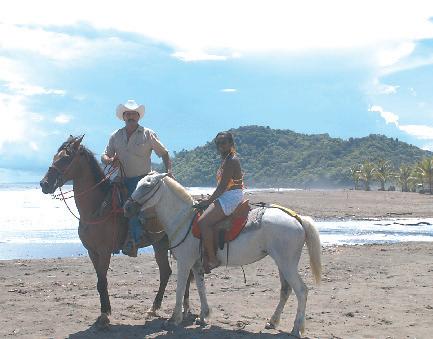
Ocean Escape–GSW team member
Fabienne Valmond (right) rides a horse along the idyllic Costa Rican shore, under the watchful eye of her guide.

The University’s evolving Challenge Course is helping future leaders learn teamwork. This innovative approach to teambuilding has been designed to strengthen group cohesiveness, team spirit and cooperation, said Clay Caswell, director of Campus Recreation.
“The reason the ropes course has been so successful is that it is an experimental teambuilding program which provides organizations and groups with exciting and challenging experiences,” Caswell said.
According to Caswell, the program has already provided local organizations and groups with teambuilding and high ropes course experiences. Specially trained facilitators utilize state-of-the-art adventure learning techniques to deliver powerful and effective experiences to groups of all kinds.
The Challenge Course has thrived since its implementation in 2002, Caswell said. More than 1,000 people have participated in the course, many of them students.
The course is open to the campus and the community as well as surrounding communities of Sumter County. Caswell said that many local businesses and groups have enjoyed participating in this teambuilding experience, noting that they have seen increased group collaboration and performance among the participants. Groups of eight to 25 are preferred.
Caswell explained that a day at the Challenge Course consists of a carefully designed series of activities selected specifically to meet the needs of a group. Exercises range from ball tossing activities to more complex challenges involving larger props. Some activities are considered physically challenging, while others are designed to provide a mental and emotional challenge. Each activity is chosen and sequenced specifically to assist groups in meeting their goals.
Caswell said that the Challenge Course consists of nine low elements and nine high elements, with two to three variations on each element. A low element is an element that is within three feet of the ground. A high element is an activity that is 30 to 40 feet from the ground. Various icebreakers, initiatives and problem solving techniques are also taught in an attempt to enhance communication, increase self-confidence and self-awareness and to develop an atmosphere of mutual support among group members.
The Challenge Course is located on the south side of the campus, across from the James Earl Carter Library.

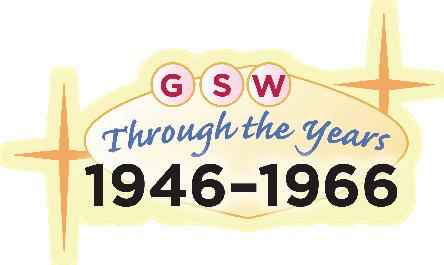
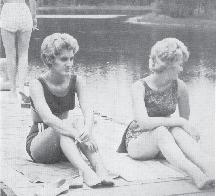
College Lake–In November 1949, the site for College Lake was cleared. Plans detailed an eight-acre lake and a 13 foot dam with water depth from 10 feet at the dam to four feet in the upper part of the lake. Four springs behind Florrie Chappell Gym were to provide water. Facilities for fishing, boating, swimming and picnicking were included. In later years, a small outdoor amphitheater was constructed near the lake, but this space gave way to building sites with four-year college status.
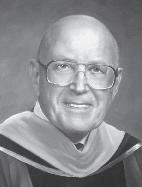

In preparation for the University’s centennial celebration in 2006, the Aeolian is peering through the mists of time, highlighting 20 years of GSW history each issue.
Mildred Lowery Memorial Chapel–A groundbreaking ceremony for the Mildred Lowery Memorial Chapel was a part of the Homecoming program, Feb. 4, 1950. Lowery, a 1934 graduate from Richland, Ga., was the first president of the organized Young People’s Christian Association. The chapel, a simple structure of concrete blocks, located near Morgan Hall, was in poor condition by the early 1970s and was removed to make way for campus expansion.
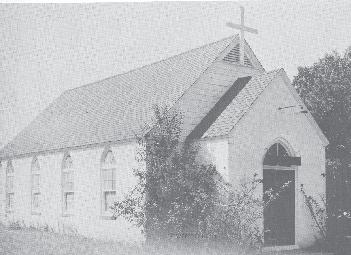
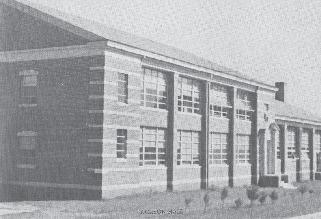
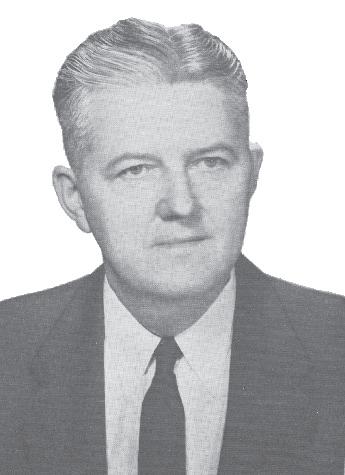
Jackson Hall–This facility was completed in 1955 at a cost of $210,000. Originally, it was a classroom-auditorium building, housing chemistry and biological laboratories and providing an auditorium to seat 400. It was named in honor of Deborah G. Jackson, a native of Lee County, Ga., who had made possible through her will the Jackson Loan Fund. When Georgia Southwestern became a four-year college, new science buildings were constructed, freeing classroom space in Jackson Hall for the music program.
Presidents–Henry King Stanford served as the campus chief executive from 1948-50. Stanford is also a past president of Birmingham Southern College, the University of Miami and the University of Georgia. Lloyd Moll served as president from 1950-63. He was previously president of Middle Georgia College in Cochran. William B. King led the institution beginning in 1963.
Share your news with classmates! Submit information to “Class Notes” today. Either complete and return the postage-paid reply card stapled in the magazine, or submit your note online at www.gsw.edu/alumni.
1927
Julia Stubbs Edwards lives in Signal Mountain, Tenn. She graduated in GSW’s second graduating class when it was Americus Normal College.
1935
Carlie A. (Red) Bell is a retired farmer and forestry owner in Blakely, Ga. He and his late wife, Grey, have five children.
1942
Betty Brinson Whittier, a retired accountant, lives in Atlanta, Ga.
1947
Joseph W. Reid, Sr. is a Carpet and Yarn executive in Dalton, Ga.
1948
Barbara Carver Fagan, a retired teacher and principal for Fulton County, Ga., lives in Newnan, Ga. and enjoys spending time with family and traveling.
1949
Helen Hoffmeyer Tippett retired from the banking business after 28 years.
1965
Gayle Peek Smith is a teacher with Barrow County Schools. She lives in Watkinsville, Ga., and has seven grandchildren and two dogs.
1968
Sara Lanthripp Giles is a campus supervisor for United Veteran Services of Ga., Inc. She and her husband, Rufus, live in Sandersville, Ga.
Brenda Hardy Shipp is a homemaker. She and her husband, Andy, live in Murray, Ky. They have one daughter and one grandchild.
1971
William L. Finney is a client manager for Cigna Healthcare. His wife, Jane (’71), is a teacher at St. George’s Day School. William and Jane were recognized by the Auburn Parents Association as Parents of the Year in 2003. They live in Collierville, Tenn.
1973
Patricia Harter Lanning and husband, Richard E. Lanning, live in Macon, Ga.
1976
Robert A. “Alf” Tuggle is a scout executive for the Heart of Virginia Council of the Boy Scouts of America. He and his wife, Marianne, live in Midlothian, Va. They have two sons, Matt, 23, an Eagle Scout, and Brad, 20, who attained the Life Rank.
1977
Susie Everett Potter is a staff nurse for Palmyra Medical Centers in Albany, Ga. She and her husband live in Preston, Ga.
1978
Dessie Russell Perdue is the business manager for the Department of Real Estate at Georgia State University. She and her husband, Timothy, live in East Point, Ga., and they have two sons, Timothy and Matthew.
1979
Carolyn Moncus is a retired nurse. She lives in LaGrange, Ga., and is an avid gardener.
1981
Mattie S. Childs (’85) is a math teacher with Dekalb County Schools. She recent-
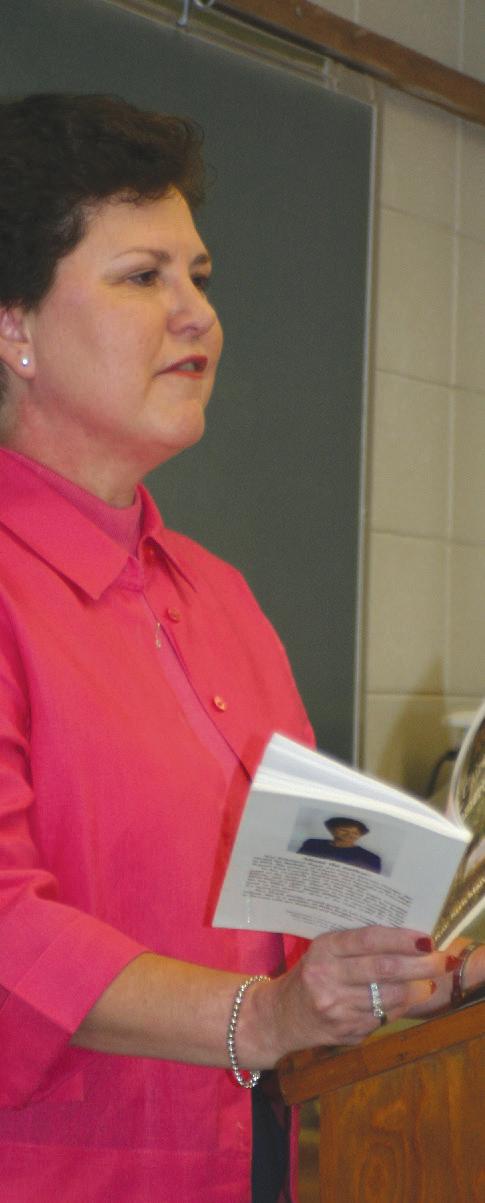
ly published volume one of Lesson Helpers, a resource manual for teachers and study guide for students in grades 7-12.
1983
Mark Swicord is the director of the Emergency Department at John D. Archbold Memorial Hospital in Thomasville, Ga. He and his wife, Amy, live in Thomasville.
1985
Christopher L. Mitchell is a senior reporter for WMBB-TV in Panama City, Fla. He recently wrote, produced and edited the Rosalynn Carter Institute’s video about its mission and work. He lives in DeFuniak Springs, Fla.
Kay (Strickland) Heath (’75 & ’91), author of Ida Claire, It’s Summertime, spoke recently with English students and other aspiring writers at GSW. The Dawson, Ga., resident and retired teacher, writes about growing up in Southwest Georgia during the late 1950s. Heath earned masters and specialist in education degrees from Georgia Southwestern. Her book is available at the GSW Bookstore.
1987
George Durell Price is a family independence supervisor for the State of Georgia. He lives in Thomaston, Ga.
1988
Lisa Wilson Davis is a pediatric resident at the Medical College of Georgia in Augusta, Ga. She received her medical degree in 2004. She and her husband, Greg (’89), live in Martinez, Ga. They have four children: Emily, 12, Adam, 9, Jordan, 8, and Katie Beth, 3.
Fran Gurley Cape is a teacher for the Henry County Board of Education. She and her husband, Vince (’89) live in McDonough, Ga. They have two children: Clay 11, and Brett, 8.
Karen Wilkerson Peck is a teacher for Ben Hill County. She and her husband, Tony, live in Fitzgerald, Ga. They have two children: Kelsey and Karla.
1992
Ken Janke (’94) is operations manager for International Coatings, Inc. in Dalton, Ga. He and his wife, Michelle (’96) have two children, Steven Ray, 4, and Rayanna, 2.
Laura West is a media specialist in Evans, Ga.
David James Hicks is the principal of Carrollton Junior High School in
Carrollton, Ga. He received an Ed.D. in educational leadership from Valdosta State University in 2004. He and his wife, Sara (’91,’92), have two children: Mason, 8, and Dawson, 5.
Patricia A. Wilson is director of Financial Aid for South Georgia Technical College. She was awarded an Ed.D from the University of Georgia in 2004. She and her husband, Ron, have two children: Whitney, 17, and Steven, 13.
Caroline Skipper Chandler is the executive director of Seminole County Family Connection in Donalsonville, Ga. She and her husband, William have a son, Winston Ivan Skipper Chandler, who was born in Russia Sept.28, 2002, and joined their family Aug. 26, 2003.
Jason C. Williams is an anesthesiologist for Albany Anesthesia Associates. He and his wife, Jill, live in Albany, Ga. and have two children: Joshua, 3, and Kate, 1.
Ray Waits was involved in handling all of the dining functions for visiting heads of state at the G-8 Summit held recently on Sea Island, Ga. This included meal coordination for President George W. Bush and the First Lady.
Melissa Bartsch is a psychologist with Cornerstone of Recovery in Knoxville,
Class of 1926
Mary P. (Bennett) Casity
Silver Springs, Fla. March 22, 2004
Class of 1933
Mildred (Burnam)
Johnson Lonnecker Chicago, Ill. August 28, 2003
Class of 1934
Nixie (Christmas) Arflin Vienna, Ga.
May 3, 2004
David T. Jennings Jacksonville, Fla. May 24, 2003
Class of 1938
Martha V. (Pate) Pittman Cheatham

Montgomery, Ala. April 30, 2004
Audrey A. (Williams) King Columbus, Ga. October 7, 2003
Class of 1939
Ellice Gay Richardson Cuthbert, Ga.
February 2, 2004
Class of 1958
Howard Q. Kennedy Helena, Ala.
July 9, 2004
Class of 1976 Bettie (Tolson) Rhyne Americus, Ga. February 9, 2004

Millard E. Agerton, Ph.D., died May 23, 2004, in Richland, Ga. The retired educator was a 1942 graduate of the institution, and taught on campus from 1968-1979. Agerton established a scholarship in memory of his sister, Agnes E. Agerton, to recognize outstanding students majoring in English. He was honored in 2000 with the “Excellence in Philanthropy Award” from the GSW Foundation, Inc. His financial support helped to renovate the University’s observatory and refurbish its telescope. The Board of Regents officially approved the naming of the Millard E. Agerton Observatory earlier this year.
Tenn. She has completed her Ph.D. in Counseling Psychology at the University of Tennessee.
Donna Engle-Connolly is a Human Resources Manager for Reynolds Plantation. She and her husband, Chuck, live in Eatonton, Ga. The have one daughter, Makenna.
Vann F. Jones is the executive director of the National Grits Festival. He lives in Warwick, Ga.
Jane O’Gorman (’97) is the director of Public Services/ Continuing Education at North Georgia College and State University.
Andrew Pope recently left the District Attorney’s Office where he worked for the last five years and started his own law firm in Moultrie, Ga. He and his wife, Brecca, have two children: Caroline,
3, and Anna Claire, 7 months.
Treva Johnson (’00) is an adolescent counselor for Advantage Counseling.
Christopher M. Jones is a pharmacy manager for Walgreens. He graduated with a doctorate in pharmacy from the University of Georgia in Athens. He and his wife, Julie, live in Macon, Ga. They have two children: Hannah and Rebecca.
Eugenia (Genie) Collins is a reporter for the Americus Times-Recorder. Her managing editor is Beth Alston , also an alumna of GSW. Genie lives in Americus, Ga.
Kimberly Hamlin Kennedy is a pharmacist with Clinic Drug Store in Americus, Ga.

She received her doctorate of pharmacy from Mercer School of Pharmacy in 2004. She and her husband, Jeremy, live in Preston, Ga. They have two children: Tyler, 2, and Corley, 7 months.
Michael J. Ross is a reporter for the Americus TimesRecorder. He lives in Americus, Ga.
Felicia O. Brown is a counselor for the Georgia Department of Corrections. She lives in Camilla, Ga.
Mark J. Cornman recently graduated from New Orleans Baptist Theological Seminary with a Master’s of Divinity, specializing in Counseling and Psychology. He lives in Brunswick, Ga.
Sonya Ragan Jones is a
4-H agent for the University of Georgia Cooperative Extension Service. She was named 4-H Agent of the Year for 2004. She and her husband, John, live in Hawkinsville, Ga.
Melaina Gilley is a counselor at Lee County High School. She and her husband, Scott, live in Leesburg, Ga.
Tina Nicole Smith Worley is a registered nurse in Cordele, Ga. She and her husband, Koby, have three children: Chase, 13, Ryan, 7, and Blake, 17 months.
Karen Faith Myers is a microbiologist for Nestle Waters North America. She lives in Lake Park, Ga.
Southwestern Symbol–Wheatley Administration Building offices have temporarily moved to other locations across campus, as a restoration of the structure is expected to be underway by Spring Semester 2005. Academic Hall was built on the site in 1907 and cost approximately $28,000. On April 16, 1915, it was destroyed by fire. Architect Crawford Wheatley, a member of the local board, supervised rebuilding on the same site. The current building, with its trademark rotunda, was completed in 1918 and cost $75,000. It is named in honor of Charles Huntington Wheatley, son of Crawford Wheatley, who died in 1991 and bequeathed 55 percent of his $20 million-plus estate to the University. In Spring 2003, $700,000 in planning funds was approved to renovate the building and restore its previous grandeur.
